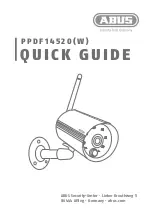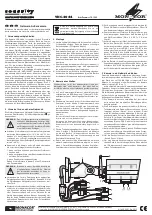
T
roub
lesh
oot
ing
117
Subject in recorded image is too dark.
Insufficient light for
shooting.
z
Set the flash to
(flash on) (
Basic
Guide
p. 15).
The subject is
underexposed because
the surroundings are too
bright.
z
Set the exposure compensation to a
positive (+) setting (p. 52).
z
Use AE lock or use the spot metering
function (pp. 49, 51).
Subject is too far away
for flash to reach.
z
Shoot within correct flash range of
the subject when using the built-in
flash (p. 136).
z
Raise the ISO speed and then shoot
(p. 65).
Subject in recorded image is too bright, or
image flashes white.
Subject is too close,
making the flash too
strong.
z
Shoot within correct flash range of
the subject when using the built-in
flash (p. 136).
The subject is
overexposed because
the surroundings are too
dark.
z
Set the exposure compensation to a
negative (-) setting (p. 52).
z
Use AE lock or use the spot metering
function (pp. 49, 51).
Too much light is shining
directly into the camera,
or is being reflected off
the subject.
z
Change the shooting angle.
Flash is set to on.
z
Set the flash to
(flash off) (
Basic
Guide
p. 15).
Image contains noise.
ISO speed is too high.
z
Higher ISO speeds and the
(High
ISO Auto) setting may increase image
noise. For higher image quality, select
as low an ISO speed as possible
(p. 65).
z
In , , , , ,
and
modes, the ISO speed increases and
noise can appear.
Summary of Contents for 2239B001
Page 150: ...148 MEMO ...
Page 151: ...149 MEMO ...
Page 152: ...150 MEMO ...
Page 153: ...151 MEMO ...
Page 154: ...152 MEMO ...
Page 155: ...153 MEMO ...
Page 156: ...154 MEMO ...
Page 157: ...155 MEMO ...
Page 158: ...156 MEMO ...
















































